
"Joel, this is Marty. I'm calling you from a cell phone, a real handheld portable cell phone."
O Martin Cooper, εφευρέτης του πρώτου -βαρύ σαν τούβλο- κινητού τηλεφώνου. Ο πρώτος στον οποίο ο Martin Cooper επεφύλαξε την έκπληξη μιας κλήσης από κινητό, καθώς περπατούσε στο Μανχάταν με συνοδεία ρεπόρτερ, ήταν ο Joel S. Engel, ο επικεφαλής του ερευνητικού προγράμματος του αντίπαλου στρατοπέδου, της ανταγωνιστικής εταιρείας Bell Labs. "I made numerous calls, including one where I crossed the street while talking to a New York radio reporter -- probably one of the more dangerous things I have ever done in my life." (Wikipedia). Φωτ. e-Bay.

Διαφήμιση της Motorola του 1984. Βλ. wirelessmuseum.

Martin Cooper. Βλ. The Verge.
The Verge Interview: Marty Cooper, father of the cellphone
By Chris Ziegler (20-02-2012).
What are you up to these days? What's keeping you busy?
I do two things. The thing I do that I have the most fun with is I'm automating my house, but that's not the work part.
Do you have a Nest?
I had my new system put in before that came out, but I do control my thermostat by Wi-Fi. I've got a central computer that actually controls everything. It knows when sunrise and sunset is, it knows when it's raining, all those kinds of things. You can write programs based upon all those things, but I haven't figured how to do a program that actually learns. That's a great idea, and I bet somebody could do it.
At any rate, I do a lot of speaking. I'm on a couple of government committees, the [NTIA's] commerce spectrum management committee, the FCC's spectrum advisory committee, and I write. So that keeps me occupied.
What phone are you using right now, and why are you using it?
Actually, I'm talking to you on a Droid RAZR. I have a new phone I would guess every six months, although I'm being sorely tested lately because the phones are coming out so fast. I only had a Bionic for one month until they came out with the RAZR. Each time they get a little better, and I think they're pretty much on a par now — if you know how to use them — with the iPhone.
Do you have an eye on what you might upgrade to next?
Well, I haven't done Windows Phone yet. At some point, that's going to be important. But the one thing that I'm hooked on is a big screen. I wouldn't use a phone with less than a 4-inch screen anymore.
You've done a lot of great things — not just at Motorola, of course, but since then you've co-founded companies. GreatCall is doing well. What are you most proud of?
That's a really hard question you ask, because it depends on what part of your career you're talking about. I think an engineer has not matured until he or she has conceived of a product and participated in every stage of bringing it to fruition, if that makes sense. And not many engineers get to do all of those stages. I actually did that once in my career, this was probably before you were born. We came out with would you believe a 12-channel mobile telephone. I don't know if you know what IMTS is, but that was the predecessor to cellular. It came out in 1963, and we ended up — even though Bell Labs was trying to put other people out of business — we ended up with like 98 percent share of the market. And the whole phone was mine, the mobile radio and everything, but we have a device called the channel element in the phone. Each frequency had its own oscillator, if you could imagine that. Are you a techie?
I am, very much so.
Good for you. Just to get to the end of the story, I invented a box where you could plug these oscillators in. And at that time adjusting the oscillators was really a problem, you had to have very fancy measurement equipment to do it. Well, this box had a precision oscillator, and all you had to do was plug the oscillator into it, you had an adjustment on the top, and a light would flash. And when the light stopped flashing you'd hear a tone, and when the tone got down to nothing you were exactly on frequency. So I conceived of the principle of doing that, and this happened with whatever frequency channel device you had. So I thought about the idea to design the circuitry. I had people build it, we went into production, I marketed the thing, and I tell you, you really learn a lot doing those things. So that was kind of important at that stage of my career.
The most important thing in cellular... sure, I'm proud of having conceived of the first cellphone, but the idea of why that was done was much more a sense of pride. That was we had to beat AT&T — we had to beat the monopoly. And remember, that wasn't the same AT&T as today. We took on, this little company in Chicago, took on the biggest company in the world by every measure. And we beat 'em. If AT&T had won and they would still be a monopoly — by the way, that's starting to happen again, and I hope that doesn't happen...
Is it true that your first call was to a Bell Labs engineer? Is this an accurate story?
It was actually to the guy that was running the whole Bell System cellular program. Joel Engel was in effect... I was running the whole Motorola cellular program, I was a division manager at that time, and he was the AT&T equivalent. I have to tell you, to this day, he resents what Motorola did in those days. They thought that we were a gnat, an obstacle. They had a vision, and their vision was that they were going to run this thing, and do it in their way... and of course, as I mentioned before, we believed in competition and lots of players. And we also believed — our religion was portables, because people are mobile. And here they were trying to make a car telephone and a monopoly on top of that. So that battle was the reason that we built that phone. We built the phone to prove to the world that you didn't have to have a monopoly running the business, you didn't have to have those resources to make cellular a reality (...)"
Για την υπόλοιπη -μακροσκελέστατη- συνέντευξη του Martin Cooper, βλ. The Verge.

Αριστ., βλ. Modern Mechanix. Δεξ., ο Martin Cooper στους δρόμους της Νέας Υόρκης με το DynaTAC 8000x ((DYNamic Adaptive Total Area Coverage). Βλ. Kostas Karasavvidis.

Αριστ., διαφήμιση της Motorola του 1989 για το DYNASEC STU-III. Βλ. Wireless Museum. Δεξ., βλ. mobil.sk.

Βλ. mobilophiles.

Η κινηματογραφική σειρά Star Trek (1966), και πιο συγκεκριμένα το Communicator του Captain Kirk, αποτέλεσε, σύμφωνα με τον Martin Cooper, την πηγή έμπνευσης για τις έρευνες του σχετικά με τις δυνατότητες κατασκευής ενός κινητού τηλεφώνου. Βλ. Trek Core.

Βλ. eveoutofthegarden.

Βλ. trekmovie.

Πρώτη κλήση από κινητό το 1973 ; 'Οχι ακριβώς... 'Ηδη, από τα τέλη της δεκαετίας του 1880, ο (παραγνωρισμένος) αμερικανός εφευρέτης Nathan Stubblefield είχε κάνει επιτυχημένα πειράματα ασύρματης τηλεφωνίας. Στη φωτογραφία, με τον γιο του Bernard ως βοηθό. Βλ. visszaaradiohoz.hu.
"He made public demonstrations of voice and music transmission to five receiving locations on the courthouse square in Murray on January 1, 1902, witnessed by at least 1,000 persons, apparently using voice frequency transmission through earth conduction, to a radius of one-half mile. Later he demonstrated wireless telephony in Washington, D.C. on March 20, 1902, where voice and music transmissions were made over a third of a mile from the steamer Bartholdi to shore. He demonstrated wireless telephony as well in Philadelphia on May 30, 1902 to a distance of a half mile. Tests in New York City in June 1902 were less successful because of electrical interference from alternating current power in widespread use there. His experiments were discussed in leading scientific journals." (Wikipedia).

Αριστ., ο Nathan Stubblefield μπροστά σε μία συσκευή ασύρματης τηλεφωνίας. Βλ. Kentucky Digital Library. Δεξ., ο Nathan Stubblefield λαμβάνει μύνημα στο ...κινητό του το 1902 (μέσω ασύρματης τηλεγραφίος). Βλ. Journal of Borderland Research.

"The world's first mobile phone was the size of a dustbin lid and had
a range of just half a mile. It could
hardly be more different to today's
devices, which are small enough to slip
inside a pocket and can call almost
anywhere in the world. But its inventor, Nathan Stubblefield, is
finally being recognised as the father of
mobile phone technology exactly 100
years after he patented his design for a
"wireless telephone"......! The melon farmer came up with his
invention in 1902 after devoting every
spare hour and penny he had to
establishing a telephone service in his
rural home-town of Murray, Kentucky.
(See The above Picture)
FIELD TEST : Receiver in hand, Nathan
Stubblefield demonstrates his invention
in his orchard (the mast [means a pole] can be seen in
the centre of the picture).
He constructed a 120ft mast in his
orchard, which transmitted speech from
one telephone to another using
magnetic fields. However, the total amount of wire
required for the coils in the phones was
far longer than what would be required
to simply connect them - but the
invention allowed mobility.
The self-taught electrician
demonstrated his device in the town's
public square on New Year's Day in
1902, broadcasting music and speech to
five receivers.
And in 1908 he patented a new version
designed to communicate with moving
vehicles such as stagecoaches and
boats.
Unfortunately, his phones were not
commercially successful in his lifetime
and he died virtually penniless in 1928." (Από το μπλογκ fullnfenil7)

Nathan B. Stubblefield homestead and Stubblefield Industrial School, 1907. Part of City of Murray and Calloway County Photograph Collection. Βλ. kdl.kyvl.org.

Τα Car phone ήταν διαδεδομένα στην Αμερική πολύ πριν τα κινητά και ιδιαίτερα στη μόδα τη δεκαετία του '70 και του '80. Βλ. mumoh και Business Opportunities.

Βλ. Information Technology Leadership.

British Pathé.
World's First Mobile Phone (1922). British Pathé.

Βλ. freakingnews.









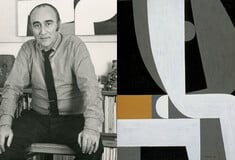










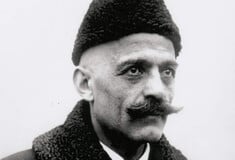

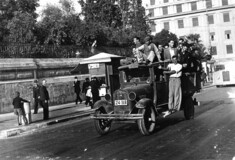


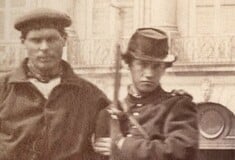
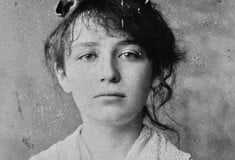

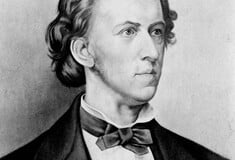
σχόλια